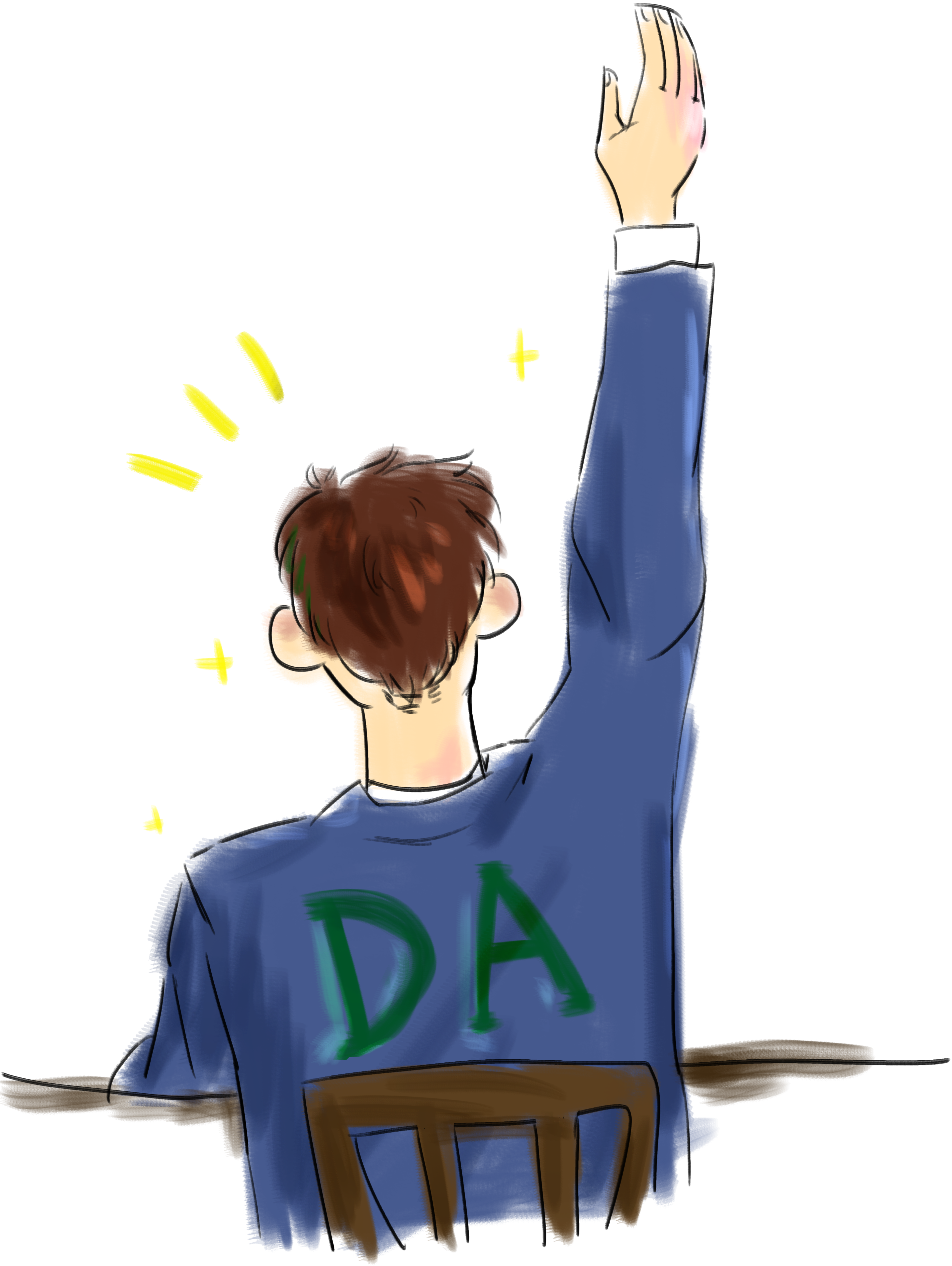Participation is a core component of the curriculum at Deerfield and at most of our peer schools. In humanities classes, participation typically accounts for 20-30% of a student’s final grade. However, The Scroll feels that the current system of class participation and grading at Deerfield often favors extroverts at the expense of introverts and sometimes even works contrary to its intent.

First of all, we think it is important to distinguish between introversion and shyness. While these two concepts may sometimes be connected, they are certainly not equivalent in psychology. Being an introvert simply means that you “recharge” yourself by spending time alone or in the company of just a few friends. Introverts also tend to reflect deeply on their thoughts and like to think before they speak. On the other hand, shyness is essentially a fear of negative social judgment or humiliation. It is completely possible for introverts to be outgoing and good at public speaking; they just need more time to think before speaking and some good downtime alone at the end of the day.
The Scroll certainly believes that public speaking is an important skill, but we feel that there are a few problems with our current system of participation. In many discussion-based classes, the teacher may pose a question and then open the floor to the students to answer. Typically, after a student offers a satisfactory answer, the teacher moves on to a new topic or question. However, we feel that this system of participation is biased towards extroverts or students who can think very quickly. It is typically the same group of extroverted students who speak first, leaving little room for introverts to participate, who by nature simply need a bit more time to collect their thoughts before speaking. Introverts can be just as engaged in class as extroverts, but often someone else says exactly what they were about to say just a few seconds faster, making it difficult to participate under our current system. It is difficult to think of an everyday situation where it is not possible to simply take a few more seconds to think before speaking. Learning is not a buzzer contest, and it is unfair to penalize students simply for not thinking a few seconds faster.
The Scroll also feels that the pressure of being graded on participation sometimes compromises our ability to have deeper and more meaningful discussions. Many students participate in class solely for the purpose of participating or raising their grade, and the discussion table is a fight to speak. Instead of taking time to consider what each person is saying, students often cut each other off to talk about an unrelated topic so they can get participation points. We believe in the value of thoughtful silence; we feel that it is sometimes more productive to spend some time contemplating what has been said in the discussion rather than charging on and only addressing each issue superficially.
Ironically, our current participation system may actually discourage some students from participating. Some Deerfield students have said that after trying to participate for so long to little avail, they’ve simply accepted the fact that participation would lower their grade. We feel that participation grades alone are an ineffective motivator because instead of participating in class, they simply try to score higher on tests and papers. These students begin to see class participation as a horrible burden, rather than a useful learning tool. Additionally, some students who are strong in STEM say that they dislike the humanities because of how participation affects their grade.
The Scroll thinks that there are many ways we can improve the participation system at Deerfield. While we are certainly not experts in pedagogy, we feel that it may be worthwhile to experiment with a more structured learning environment. For example, instead of allowing students to blurt out their answer or thoughts as soon as they think of them, it may be useful to wait a few moments and allow others to gather their thoughts as well. In this way, all students will be able to think critically about the problem. By purposely waiting, this also alleviates the pressure that many students feel to answer quickly, and it encourages more thorough and thoughtful answers to the question at hand, rather than the first answer that comes to mind. This style of participation would be more inclusive to everyone. If teachers even call on students who do not raise their hand, they can help build shy students’ confidence to speak. This would also be better at motivating students to speak than participation grades alone.
Both introverts and extroverts can learn many things from each other. In open class discussions, extroverts should leave some room for the introverts, and perhaps even take the lead by asking other students what they think. We believe that great leaders are genuinely interested in everyone’s opinions, not just in stating their own. There is value in thinking more before you speak. We would also encourage introverts and shy students to speak up in class and risk being wrong. It takes a long time to come to terms with the idea that it’s okay to be wrong, but that acceptance can be life-changing. There is a new sense of freedom to be gained.
Elbert Hubbard, an American writer and publisher, once said, “to avoid criticism, do nothing, say nothing, be nothing.” Truly, there will always be someone who can find fault in what you do, no matter how well you do it. Deerfield is also one of the best places to risk being wrong; there are no consequences for saying the wrong answer in a class discussion.
The Scroll believes that if all of us work together as a community to make the discussion table a more welcoming environment for everyone, we will not just benefit introverted or shy students, but rather hear increased diversity of viewpoints and have even greater and more meaningful discussions.

